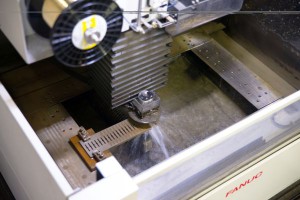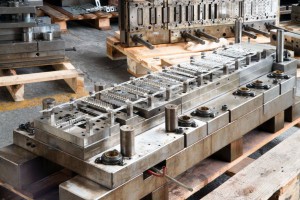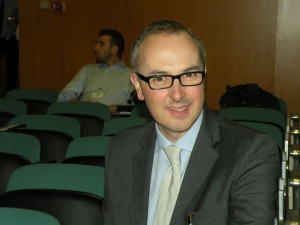Three years of sufferance but also a useful transition period to establish the preliminary conditions for a better future. Fausto Romagnani, after leaving the presidency of Istma World last March, talks with Mould&Die World magazine about balances and prospects of the Italian mould and die maker industry and much more, seen from an international privileged observatory.
Fausto Romagnani, owner of the homonymous Romagnani Stampi srl, headquartered at Pioltello in Milan province, after three years at the management of Istma World, last March handed over the baton of Chairman to the American David Tilston. Mould&Die World magazine has interviewed him to outline together a balance of his 2011/2014 triennium and a projection of the future.
Since 2011 until the current 2014, you run Istma, the main world association of mould and die makers. What balance can you outline of it?
They were three difficult years, characterized by an unfavourable international short-term business trend and with Countries that have lost several mould and die makers. Italy, my Country, has been strongly affected by this crisis and however, despite the long recession, is still a forefront nation in the sector: even witnessing the export growth of realities like China and Korea, it remains steadily the second manufacturing Country in Europe after Germany.
Did some positive aspects occur, despite the crisis?
It was a period of strong evolution of the sector, from different points of view, starting from companies’ organization. In spite of all, then, a precious time to establish and to consolidate professional relationships, and to exchange commercial, technical and entrepreneurial information among players worldwide, in an epoch in which various workshops have made remarkable leaps of technological and managerial quality.
What can you say of your successor, the American Dave Tilstone?
He is a skilful and competent person, relying on a great experience in our sector. He certainly has a different approach, which derives from the peculiarities of the market from which he comes: the American one, due to historical-political reasons, can boast sectors that are not so strong in Italy, like the military and aerospace production, to the extent that lots of their companies work for both. Besides, like the majority of the managers of United States companies, he tends to a stronger and more constant participation in the life of the Association. A characteristic that should determine positive repercussions on the entire association, without considering that, after a certain number of European mandates, it is very positive to have a president coming from a different Continent.
What is the added value of these meetings promoted by Istma?
The exchange of ideas, information and collaborations among colleagues about the professional approaches to our sector. The major difficulties that we face in the associative life are instead more or less the same, as always: to let entrepreneurs understand that the participation in Istma initiatives is not a loss of time but instead an investment, also and especially in times of economic “fatigue” like the one we are living.
In the light of the economic dynamics of last months, what prospects should Italian mould and die makers expect?
There are some positive signals, like a bigger number of job orders and consequently a production restart. It is however difficult to define to what extent this trend inversion can be stable and durable. In any case, they are not sufficient to change the working conditions structurally: margins, for instance, have become a constant. We work with much tinier profit margins than in the previous decades. The law of supply and demand still proceeds on a much more delicate balance line.
 The crisis of the last few years has worsened the succession problem: can we glimpse general awarding lines to face this aspect of the corporate life at best?
The crisis of the last few years has worsened the succession problem: can we glimpse general awarding lines to face this aspect of the corporate life at best?
The question certainly existed also before this business trend. The majority of our companies were established during the post-war economic boom and they have generally maintained the same management until the Eighties and Nineties. Then the problem increasingly began to manifest itself. I do not think, anyway, that there are standard valid solutions for all. Companies do not differ much from living organisms: the type of evolution that each has lived in its history determines whether to turn to the management or to the family succession or instead to the network merging of more enterprises. It depends anyway both on the specific motivations and competences inside the company and on the requirements that arise owing to the macro-economic changes of the sector.
The research of the right competences in the company is an essential column, too. From a recent interview with Tilstone we have deduced a completely different structural survey between USA and Italy in this aspect, which sees us much more unprepared. How can we remediate it?
The Italian tradition has always been characterized by the training on the field. Today we have no more time for such a slow process. The working rates, imposed by globalization, require the immediate professionalism of new collaborators and the possibility of employing already trained personnel. We need a big effort among companies, cooperating more in this factor. It is certainly worth importing good will and farsighted vision from the American system, but also Germany, Austria and Switzerland are concrete examples because they clearly show how the integration between technical schools and companies can become possible.
Further concern: the growth of rising Countries that you have mentioned before. How can we deal with it?
Without fear, like any other competitor, aware that the market does not change only today but it will be always subjected to modifications. Until when our direct competitor was Portugal, we knew that there were 400 similar companies to ours on the South-European market maximum. Nowadays, since China has grown, the scale to which to refer changes but our real reference partners always remain buyers – often multinationals – to which we have to demonstrate that our quality is the best that they can find on the market.
In a more competitive market, it is however unavoidable to focus on the conditions in which we are compelled to operate: the minor attention to labour rights in China, for instance, finally advantages eastern realities …
It is advisable to extend the matter to all general rules: to the higher domestic taxes, for instance, or to the duties that we meet exporting to some Countries. All parameters should be considered. Our German colleagues and competitors, for instance, in comparison with us benefit from better infrastructures and supports, including the national training of the technical personnel and workers. Without forgetting the cost of money, on average more burdensome at us.
 A crux connected with the question of the difficult access to credit …
A crux connected with the question of the difficult access to credit …
If a company is soundly consolidated, it is not affected by relevant hindrances. Concerning development projects, on the contrary, the reluctance of the bank world to invest is tangible. The essential problem remains anyway the cost of money: a variable that certainly differs from Country to Country.
Is there the delocalization risk under these conditions?
Operating as sector, we are trying to maintain our enterprises in Italy but there are clearly some alarm signals. At present, some colleagues are just considering it while others have actually delocalized abroad, in Austria per instance. This event, moreover, is linked with a second worsening problem: the delocalization of our customers, which sometimes induces our enterprises to move their productive plants, completely or partially. To avoid these phenomena, it is necessary that the whole Country-system ensures more consideration, collaboration and support to our sector.
Have you illustrated these needs to the European Union?
We have been working for years with Istma on some Community development projects, through attendance and promotion activities. We are a small sector but with the capability of notably influencing the whole industrial chain. To do that, it is necessary to inform about the crucial importance of our segment for the whole economic and productive system and ask for adequate answers. We have just to consider China, for instance, where the mould and die sector has been declared strategic for the national industry. Or South Africa, where it is supported with an investment plan worth 4 billion dollars in 7 years. We are far from similar conditions.
Would a higher aggregation on international scale be helpful?
In our field, composed by medium-small companies, it would be a difficult process. Germany is perhaps the Country where such evolution is more successful but, in general, it represents a bit a stumbling block all over the world. It is an essentially cultural problem – and in Italy in a more pronounced way than in other Countries – but also practical-regulatory.



